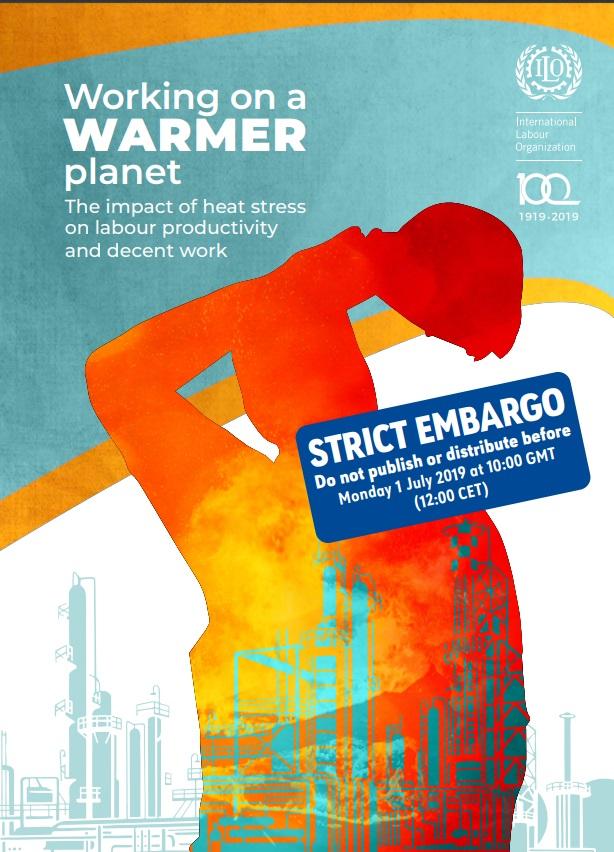| LDR | | | 00000cam a22000004b 4500 |
| 001 | | | MAP20190020787 |
| 003 | | | MAP |
| 005 | | | 20190704085942.0 |
| 008 | | | 120301s2019 che|||| ||| ||spa d |
| 020 | | | $a978-92-2-132968-8 (web pdf) |
| 040 | | | $aMAP$bspa$dMAP |
| 084 | | | $a872.2 |
| 245 | 1 | 0 | $aWorking on a warmer planet $b: the impact of heat stress on labour productivity |
| 260 | | | $aGeneva$bOIT$c2019 |
| 520 | | | $aThe world of work is intimately connected with the natural environment. Environmental degradation directly affects the world of work in a negative way. Both the availability of jobs and the provision of safe, healthy and decent working conditions rely on the absence of environmental hazards and the preservation of environmental stability. The risks and hazards associated with environmental degradation tend to affect vulnerable workers most strongly (ILO, 2018a). The increasing frequency and intensity of natural disasters associated with human activity have already caused productivity losses. Looking ahead, projected temperature increases will make heat stress more common, reducing the total number of working hours and affecting, above all, vulnerable workers in developing countries. The damage resulting from unmitigated climate change is therefore a direct threat to the growth of real gross domestic product (GDP), as well as to labour productivity and working conditions |
| 650 | | 4 | $0MAPA20080580858$aHigiene ambiental |
| 650 | | 4 | $0MAPA20080568894$aEstrés térmico |
| 650 | | 4 | $0MAPA20080574932$aCambio climático |
| 650 | | 4 | $0MAPA20080566968$aProductividad |
| 650 | | 4 | $0MAPA20080577230$aPolítica laboral |
| 710 | 2 | | $0MAPA20080449797$aInternational Labour Office |
| 856 | | | $uhttps://www.ilo.org/wcmsp5/groups/public/---dgreports/---dcomm/---publ/documents/publication/wcms_711919.pdf |
| 856 | | | $qimage/jpeg$w1102546$yPortada |


